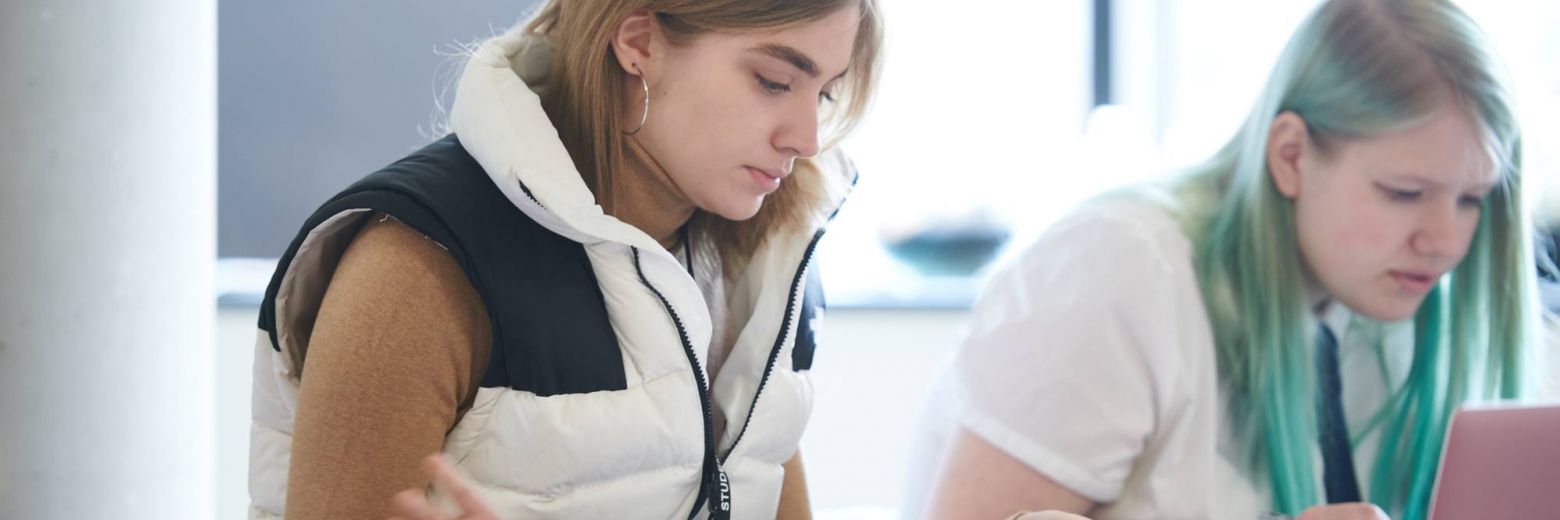RUSSIAN
Russian is one of the world’s leading languages, being the third most widely spoken European language.
WHAT IS RUSSIAN?
Russian is one of the world’s leading languages, being the third most widely spoken European language. A level Russian is a fascinating mix of culture, society and language. It provides an opportunity for you to improve your ability to write, understand and speak Russian at a high level. The course focuses primarily on language skills and aims to enable you to discuss and write about a range of issues from youth culture to the environment and social issues. This combination of developing sophisticated linguistic skills while at the same time studying Russian literature (A.S.Pushkin “The Queen of Spades”) makes Russian A level enormously rewarding and challenging.
If you enjoy communicating with other people and learning about Russian culture and traditions, this subject is an excellent choice for you.
IMPORTANT NOTICE
Please note that this A Level course is subject to a minimum number of students enrolling.
WHAT IS RUSSIAN AT DLD?
The Russian department at DLD follows the Edexcel Advanced Specification in Russian. The full A level qualification is made up of two AS units and two at A2. The department makes use of a wide range of resources including textbooks, handouts, films, newspapers, magazines and assorted subject-specific web sites. Lesson time is split up in a variety of ways to meet the exam requirements – class discussions, oral and listening practice, essay writing, individual research and ‘traditional’ teaching of grammar and punctuation. There are regular tests to help the students monitor their own progress but also to become accomplished and confident in essay writing or translating. The aim is to provide a full, dynamic and highly enjoyable programme of work.
HOW IS RUSSIAN AT DLD ASSESSED?
| Weighting | Format | ||
| Unit 1 | Spoken Expression and Response in Russian | 15% of the total GCE marks / 30% of the total AS marks | Oral |
| Unit 2 | Understanding and Written Response in Russian | 35% of the total GCE marks / 70% of the total AS marks | 2 Hour 30 Minute Exam |
| Unit 3 | Understanding and Spoken Response in Russian | 17.5% of the total GCE marks / 35% of the total A2 marks | Oral |
| Unit 4 | Research, Understanding and Written Response in Russian | 32.5% of the total GCE marks / 65% of the total A2 marks | 2 Hour 30 Minute Exam |
Exam Board: 1 yr. ED
WHAT DO I NEED BEFORE RUSSIAN AT DLD?
It is vitally important that you enjoy the subject. There is a lot of reading to do, vocabulary to learn and written work to produce, so it is essential that students love being around language. A GCSE pass is required, although there are times when real enthusiasm is almost worth a grade in itself.
GOOD SUBJECT COMBINATIONS
Languages are universally useful. Russian A level combines with courses in other languages, the humanities, especially English or History but mathematicians and scientists often learn a language, too. Any subject fits.
WHAT DO I DO AFTER DLD?
One of the enormous advantages of studying a language is that it is always a treasured and useful skill that many employers and higher education providers value. Students may go on to study languages at degree level either as single honours or combined with subjects as diverse as Philosophy, Economics, Business Studies, Human or International Relations, Marketing and Psychology. Russian may also provide students with entry qualifications to a degree course in Slavonic Studies, Linguistics or Interpreting. Language graduates go on to pursue careers in business, investment banking, medicine, law, the media and teaching because they offer skills which are unique: clear communication, confidence while speaking in public, linguistic independence in dealing with international business partners and cultural awareness. The list is endless.
With broadening economic, political and cultural contacts between Russia and other countries, knowledge of Russian can greatly increase a student’s employment potential and generally improve their prospects of success.
QUESTIONS ON RUSSIAN COURSES
Q. Can I do the course in one year?
A. Yes
Q. If I am from the former Soviet Republic, will universities still consider my A Level grade?
A. Yes – The majority of institutions will.
ENTRY REQUIREMENTS ON RUSSIAN FOR INTERNATIONAL STUDENTS
To study A Levels, your current or pending exam results should be equivalent to or higher than GCSE (General Certificate of Secondary Education) in at least 5 subjects and a minimum level of English equivalent to IELTS 5.5.
At the start of each academic year of study students following an A Level course without a pass at Level 5/Grade C in GCSE or IGCSE English Language or with an Academic English score below 6.5 overall must join an Academic English training course for the duration of the academic year which will be timetabled alongside A Level lessons.
If your level of English is not sufficient to meet the entry criteria for the A Level programme you will normally be offered a place on the one year Academic Preparation Course (pre A Level) in order to bring your English skills up to the required level.



